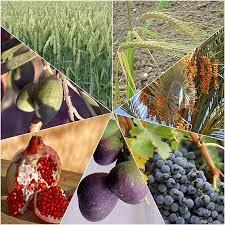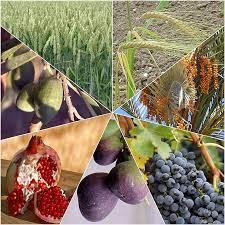Questions on Parashat HaShavua
שְׁאֵלוֹת לְפָרָשַׁת הַשָּׁבוּעַ: בְּחֻקּוֹתַי
HaShem promises בני ישראל that if they observe the Mitzvot they will receive many blessings.
- Which blessing is promised regarding rain (26:3)?
- Which blessing is promised regarding fruit trees (26:3)?
- Which blessing is promised regarding harvesting the fields (26:4)?
- Which blessing is promised regarding security (26:4)?
- Which blessing is promised regarding wild animals (26:5)?
- In chapter 26:6 the Torah says that a sword will not pass through the land. What is the meaning of the word “sword” here?
- What is the promise in this verse?
- Which blessing is promised regarding our enemies (26:8)?
- What does the Torah say about old food and new food (26:10)?
- Which blessing is promised regarding the Mishkan and what does it mean?
- The Torah says “התורות אשר נתן ה'”, meaning that HaShem gave בני ישראל two Torahs (26:46). What are the two Torahs?

Answers for Parashat HaShavua – בְּחֻקּוֹתַי
- The rain will come in its season.
- The fruit trees will bear a lot of fruits.
- There will be so much wheat that the seasons of sowing and harvesting will overlap.
- בני ישראל will live safely in the land.
- There will be no dangerous wild animals in Israel.
- The meaning of the word “sword” is war.
- The Torah promises that there will be no war in Israel.
- Few of בני ישראל will be able to chase away many enemies.
- There will be so much food that בני ישראל will take out the old food to make room for the new food.
- HaShem will place His Mishkan among בני ישראל. That means that He will always be close to them.
- The rabbis explain that the two Torahs are the Written Torah and the Oral Torah – תורה שבכתב ותורה שבעל פה. The Written Torah is the five Chumashim. The Oral Torah is the Mishnah and the interpretation of the Mitzvot.








Ohr HaChaim Yomi – Emor